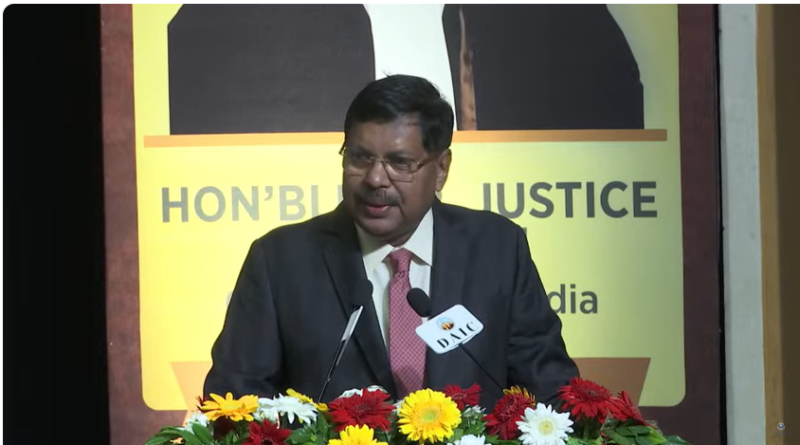Gender Justice Is Not Women’s Burden Alone; Men Must Share the Constitutional Duty: CJI BR Gavai
(Judicial Quest News Network)
Delhi 13,11,2025 – Chief Justice of India (CJI) BR Gavai on Wednesday underscored that the journey towards gender equality will bear true fruit only when men and women collaborate as equal partners in dismantling entrenched barriers of discrimination.
“Achieving gender justice is not the responsibility of women alone. It requires an active reimagining of power by men, especially those who occupy positions of authority in our institutions, workplaces, and political systems. Real progress will come only when men recognize that sharing power is not an act of loss, but of liberation of society. The path to a gender-equal India, therefore, lies not in confrontation but in collaboration, where men and women together rebuild the moral and institutional architecture of equality envisioned by our Constitution.”
Delivering the 30th Justice Sunanda Bhandare Memorial Lecture on the theme “Justice for All: Building a Gender-Equal and Inclusive India,” the Chief Justice observed that gender justice cannot be viewed as the responsibility of women alone. “It requires men to acknowledge that sharing the disproportionate power they hold is not a loss, but a collective gain for society,” he said.
“After 1975, the national discourse on gender equality began to evolve beyond questions of formal rights, turning instead toward the deeper idea of dignity as an inseparable component of equality. The conversation shifted from mere legal parity to the recognition of women’s autonomy, bodily integrity, and the social realities that shape their lived experiences.”
Reflecting on the constitutional journey since 1950, CJI Gavai divided the nation’s progress into three phases of 25 years each. He noted that the past quarter-century has been marked by legislative and judicial advances towards the comprehensive protection and empowerment of women. Among these, he cited the Protection of Women from Domestic Violence Act, and the judicial recognition of reproductive rights, as well as the inclusion of transgender and queer identities in the expanding ambit of constitutional equality through landmark Supreme Court judgments.
“The judgment reflected a deeply regressive and patriarchal understanding of consent, effectively denying the social context of power, coercion, and vulnerability in which sexual violence often occurs. In my view, this decision remains one of the most troubling moments in India’s constitutional and judicial history, and I call it a “moment of institutional embarrassment”, where the legal system failed to protect the dignity of the very person it was meant to safeguard.”
However, the CJI cautioned that the path has not been without its missteps. “There have been moments when judicial interpretations failed to capture the lived realities of women and fell short of the transformative spirit of our Constitution,” he said. Referring to the Mathura rape case, in which two policemen were acquitted despite serious allegations of sexual assault on a tribal girl, the Chief Justice described it as “an embarrassing example of judicial insensitivity.” Yet, he acknowledged that the public outrage and nationwide protests that followed—led by women’s groups, students, and legal activists—sparked the modern Indian women’s rights movement.
“The vigilance of civil society, the persistence of women’s movements, and the courage of ordinary citizens have together kept the judiciary accountable to the constitutional promise of equality. Therefore, it is important to acknowledge that progress in gender justice has never been the achievement of courts alone. The collective voice of citizens has ensured that regressive precedents were questioned, debated, and ultimately corrected through reform, reinterpretation, or legislative intervention.”
Concluding his address, CJI Gavai reminded the audience that the journey toward gender equality remains far from complete. “The task before us is not to celebrate symbolic achievements or token representation,” he said. “We must ensure that women have a real and equal share in the spaces of power, decision-making, and opportunity.”
Paying tribute to Justice Sunanda Bhandare, he added that her contributions—both on and off the Bench—will continue to inspire generations in the ongoing pursuit of justice and equality.




